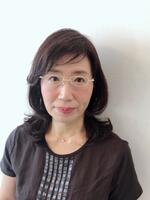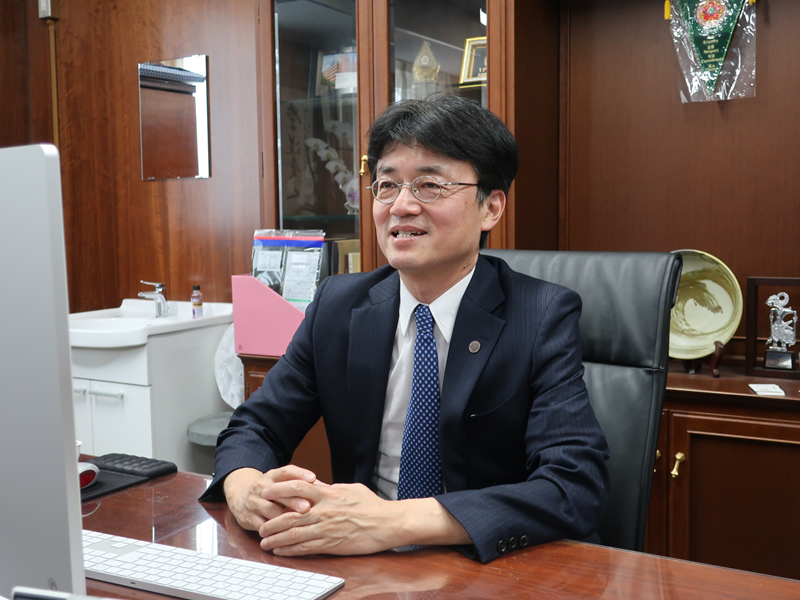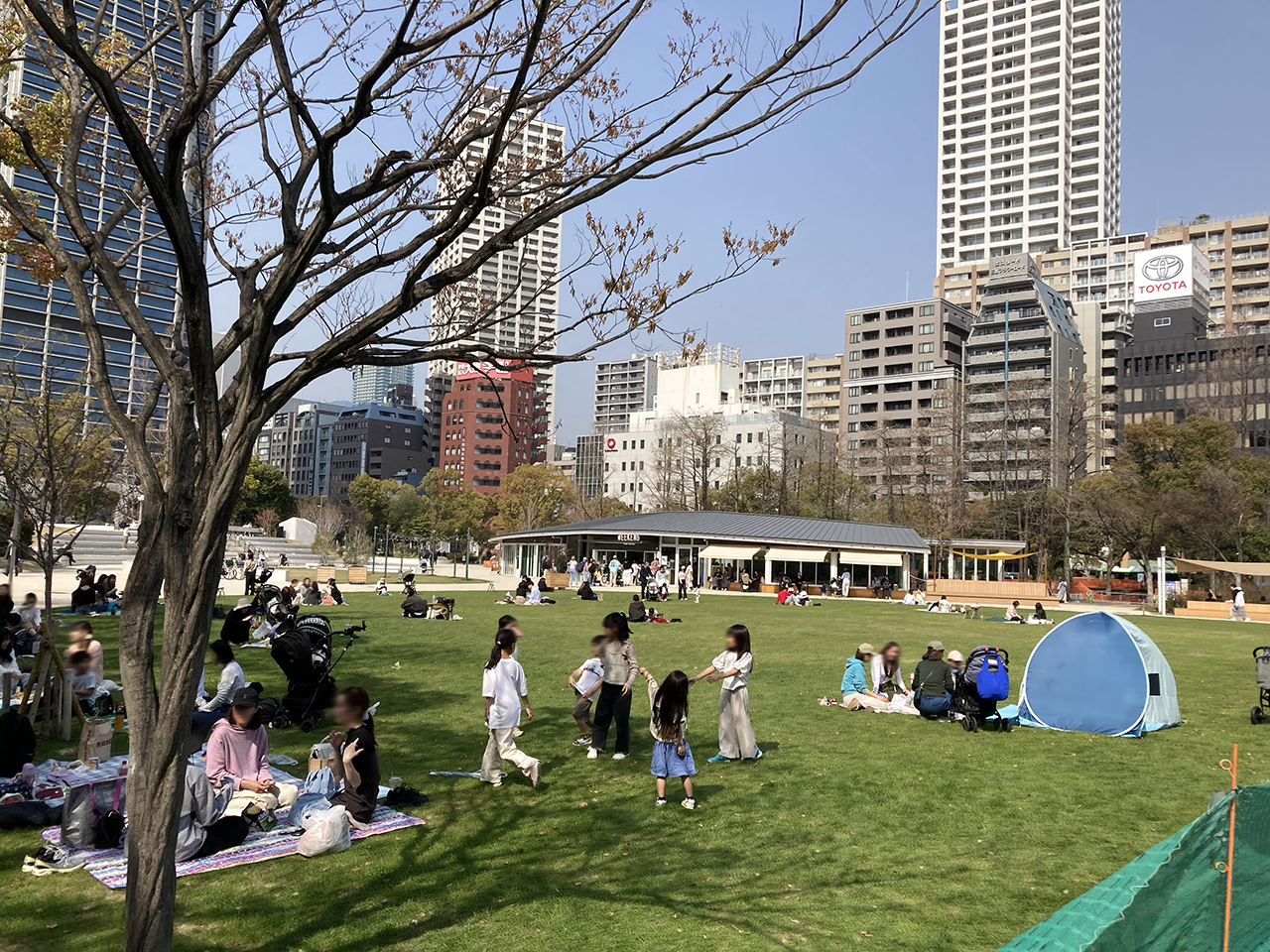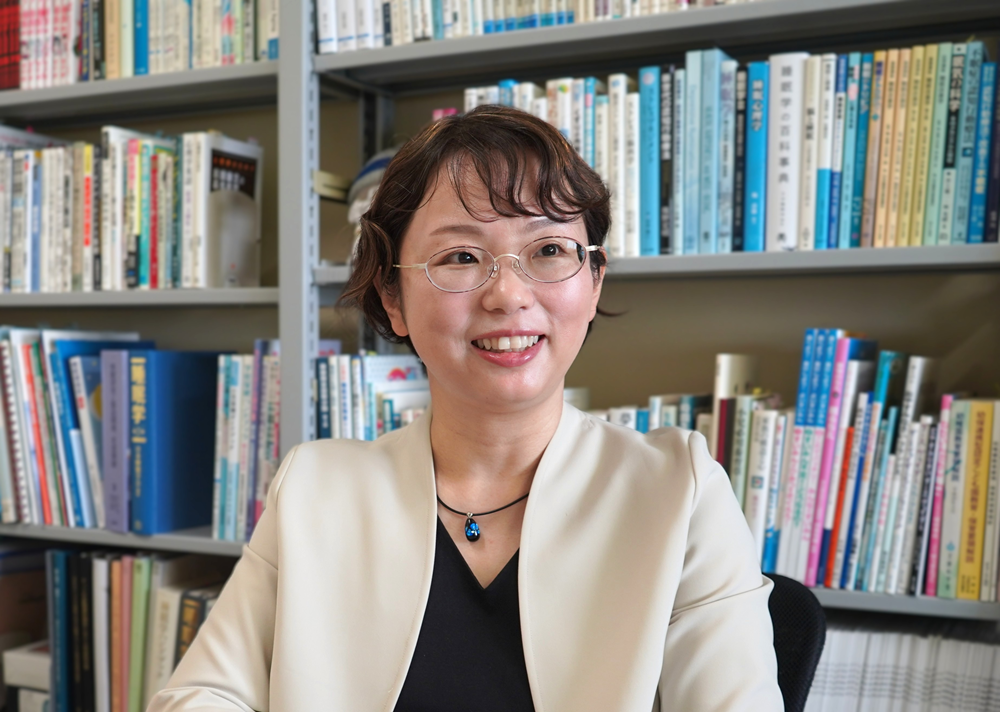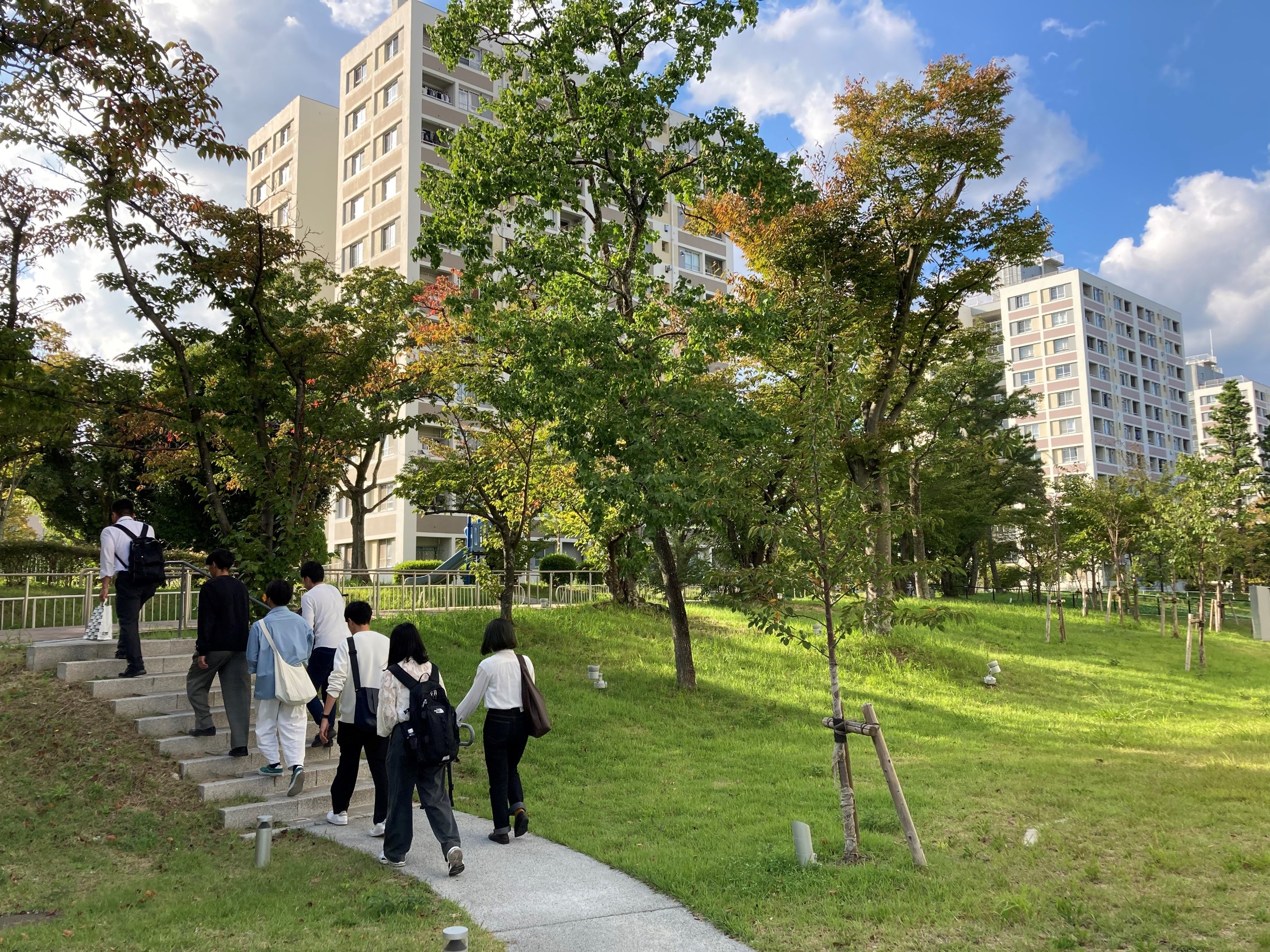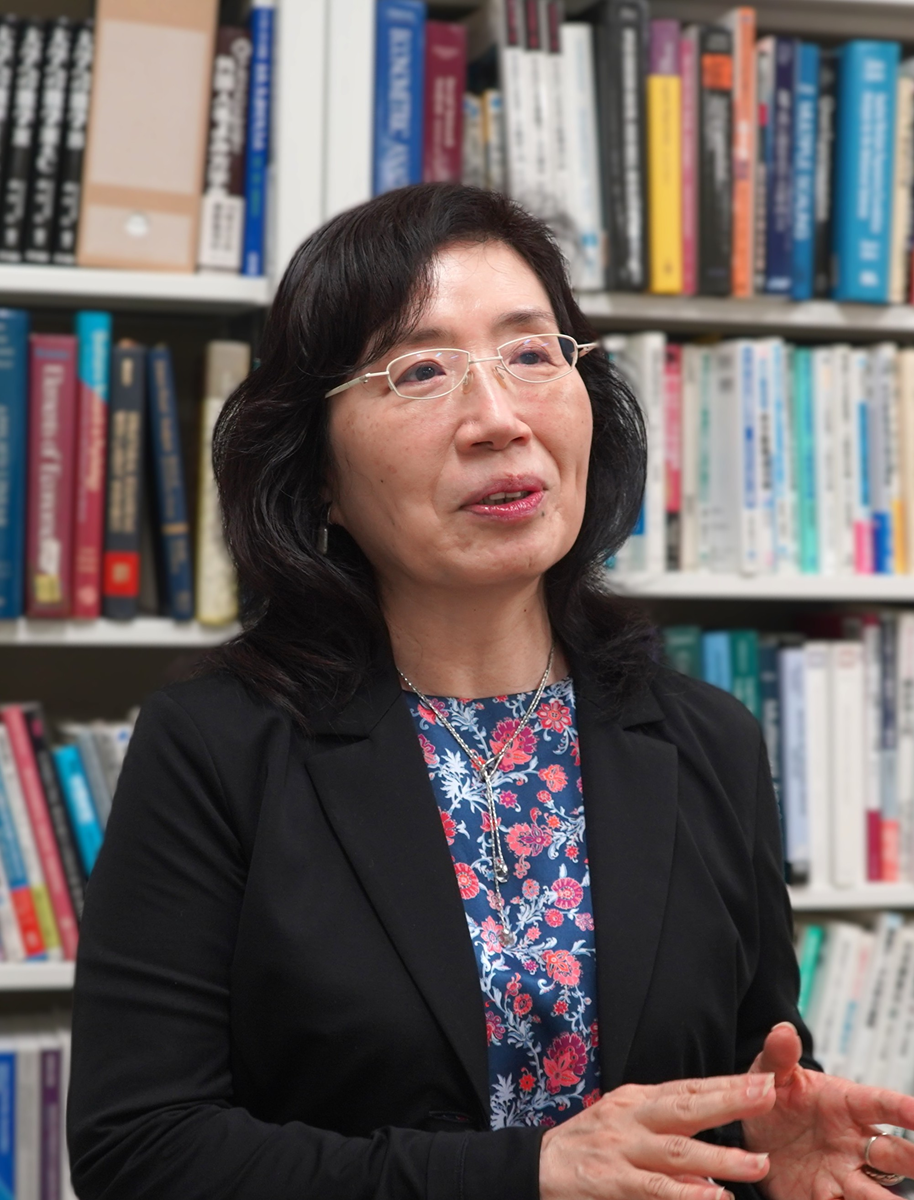
The term “well-being” has become widely used as a term to express favorable conditions physically, mentally and socially. However, it’s a broad concept, with a wide range of related research fields. In 2022, Kobe University created the Office for Promoting Well-being, a university-wide organization that promotes research, education and regional partnerships, and established the Advanced Research Center for Well-being, which serves as a hub for interdisciplinary research activity. What is the center aiming to achieve, and what kind of activity is being performed there? We asked Professor KATAGIRI Keiko, director of the center and expert in social gerontology and social psychology, about the current state and future prospects of this research.
The importance of the perspective of “social well-being”
First of all, could you explain the concept of well-being?
Katagiri:
In the Constitution of the World Health Organization adopted in 1948, health is defined as “a state of complete physical, mental and social well-being and not merely the absence of disease or infirmity.” Note that the term “well-being” is used in this definition.
In recent years, the definition of “health” has often been entirely replaced with an explanation of “well-being,” but well-being means different things depending on the context and person. It’s a convenient term with an unclear definition.
Generally, it tends to be thought of as a word to express the happiness of an individual, but it’s important to think about it on a social and global scale. Could we say that “if an individual is happy, then it’s fine if the environment is destroyed”? Of course not. We must pursue well-being of the environment and society that includes humans, not just the happiness of the individuals within it.
What has caused well-being to receive so much attention?
Katagiri:
In the latter half of the 1970s, American political scientist Ronald Inglehart described a worldwide “shift from materialist to postmaterialist values,” leading to the realization that in developed nations, material satisfaction doesn’t actually make people happy.
Even in Japan, material satisfaction was the goal following World War II, but nowadays, young people take having possessions for granted, which has led them to be less interested in, say, owning their own cars. Also, during Japan’s high economic growth period, most people were headed in the same direction, meaning that the happiness of the majority was being pursued, but in our modern world, diverse sets of values have led people to pursue their own ways of life. We’re in an era in which happiness can’t be measured by gross domestic product (GDP).
This has led well-being to gather attention in a variety of areas, from policy making to business strategy. Many young people emphasize whether or not companies consider the well-being of each of their employees when seeking employment, so now companies have also begun to incorporate that perspective in order to acquire personnel.
Promoting research through multidisciplinary co-creation and international collaboration
What are the aspirations of the Kobe University Advanced Center for Well-being?
Katagiri:
There has been an increase in organizations and research centers that engage in activity that promotes well-being, but in many cases, this activity focuses on individual health and purpose in life. However, like I mentioned before, achieving true well-being requires improving well-being for both individuals and society as a whole. The diagram gives a good description of the vision for our center.
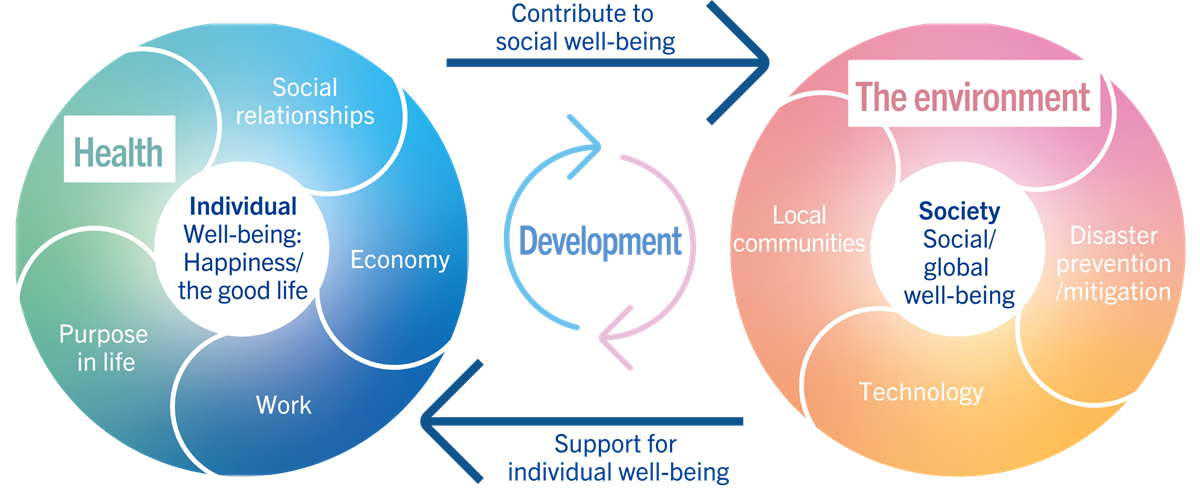
An important characteristic of the center is that it comprises three divisions, the Health Research Division, the Development Research Division and the Environmental Research Division, in which researchers from the fields of health science, gerontology, psychology, economics and public health conduct research through multidisciplinary co-creation and international collaboration. They consider how to achieve well-being through the course of one’s life, from birth until death, while elucidating changes in well-being at different life stages from a developmental perspective as well as the factors that affect these changes.
The center’s role isn’t to simply expand the organization; its function as a hub that connects various institutes and researchers is even more essential.
Japan is at the forefront of the world when it comes to its aging society. Gerontology and other related fields have gathered lots of attention even from overseas, so it’s appropriate to promote collaboration internationally when it comes to well-being. In fact, the center has received requests to collaborate with research institutes in various countries. There have even been requests to deliver lectures on purpose in life, known as “ikigai” in Japanese, which is also of great interest overseas, from a uniquely Japanese way of thinking. I want our early-career researchers to be proactive in presenting their research abroad and engaging in international collaboration.
In the two and a half years since the center opened, what type of research have you specifically been performing?
Katagiri:
As the core focus of our research, we are conducting the “Kobe well-being study,” in which we survey some 4,000 individuals aged 18-74 in three metropolitan areas on well-being from various angles. We are also collaborating with the “Multidisciplinary integration for resilience and innovation (MIRAI)” project run by Kobe University to elucidate well-being over the entire course of one’s life.
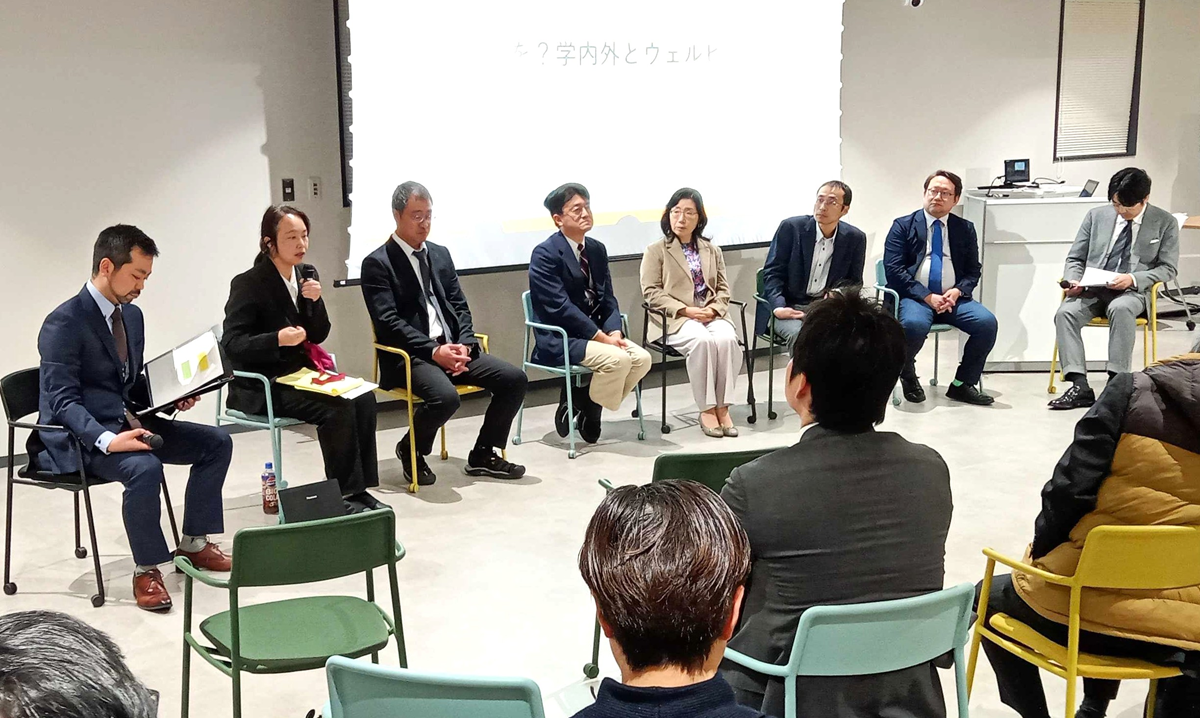
We perform research for establishing optimal support methods for each individual regarding behavioral changes for their health, as well as survey research regarding employment of older adults and their well-being. Through collaboration with the Digital Bio and Life Sciences Research Park Promotional Organization (DBLR), an innovative research platform formed by Kobe University which comprises hubs in 5 areas, such as healthy lifespan, we perform research that even includes the establishment of specific support methods.
Researchers at the center conduct research in a wide variety of areas, such as dementia prevention, preventing social isolation, exercise habits, international infectious disease countermeasures, and the effects of environment on human well-being. We hope to contribute as many of these research results as we can back to society.
What are the advantages of performing research based in Kobe?
Katagiri:
Currently, over half of the Japanese population lives in cities, with more and more older adults living in cities from the baby boom generation onward. Previously, research on older adults was associated with an interest in issues related to worsening depopulation in rural areas, but moving forward, we also need to pay attention to the differences between cities and rural areas.
When you think about it that way, Hyogo Prefecture is a region that can provide approaches to problems associated with urban areas, like Kobe, and more depopulated areas. In contrast to areas like Tokyo's capital area, Kobe is a city on a more intimate scale, and it provides us the advantage of being able to perform research and practical studies at a university.
Focusing on the “third age” and implementing research in the community
What is your personal research focus?
Katagiri:
As an expert in social gerontology, I perform research on the “third age,” a relatively active period for older adults immediately following retirement. In this time known as the era of the centenarian, I’ve performed empirical research on employment of third agers, the role of social participation and the social systems that support them. In contrast with times in which lives didn’t last as long after retirement, nowadays, how one lives their life during this period is important for finding meaning and happiness in aging.
There are many older adults whose post-retirement debut in their area doesn’t go well, and thus they find themselves isolated. There are also older adults who may look like they’re active, but in reality, they too feel a sense of loneliness. I perform and implement research to construct communities to prevent social isolation and solitude.
An example of this is when I collaborated with Urban Renaissance Agency (UR), a Japanese semipublic housing agency, to implement my research in a housing complex in Kobe City. Compared with individuals who have their own houses or who live in condominiums with owners’ associations, older adults in rental housing have much looser ties to the area around them and are thus considered at higher risk of isolation and solitude. So, we created a place to gradually build connections through lifelong education and enjoyable events.
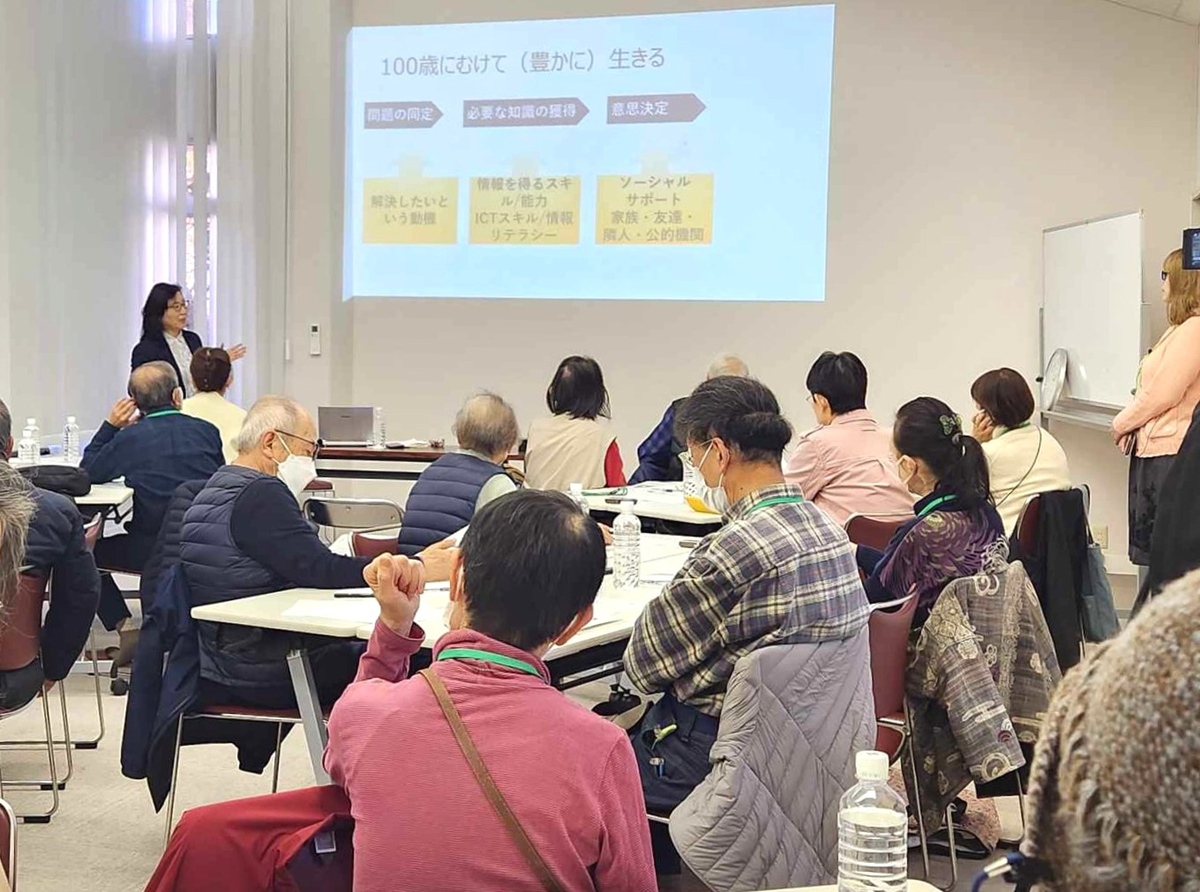
Third agers tend to shy away from events emphasizing the importance of “preventative care” and being “for older adults.” Rather than placing the objective of preventing isolation and solitude at the forefront, our program has participants naturally realize the importance of social connections through learning that incorporates group discussions, courses that make use of university knowledge and other events that they can enjoy. After starting this program, we’ve had active participation from people who are searching for their ideal third age.
In recent years, there has tended to be an interest in how we extend our healthy lifespans, but even if you’re sick, there must still be happiness to be found. I think that this can also relate to the well-being of individuals with disabilities. I want to emphasize this perspective when conducting and implementing research moving forward.
Wanting to create a place for researchers to meet
What are your futures endeavors at the center?
Katagiri:
At Harvard University, they have been tracking a cohort of individuals since 1938 to elucidate happiness in life in what is called the “Harvard study of adult development.” I would like to perform this kind of large-scale, long-term study in Japan. Last year, I asked researchers at Harvard about the hardships of their research and they told me that the reason not many have left the study midway through is actually because they conduct such detailed follow-ups for each of the targets of the study.
This kind of longitudinal study would be difficult to perform right away, so for right now, we’d like to perform cross-sectional studies, like our “Kobe well-being study,” and leave behind novel research results.
I also would like to start working to make the center into a hub for various research institutes. I’d like to regularly hold something like a “Café Well-being” to create opportunities for researchers to meet. I think that these could also serve as opportunities to promote research through co-creation between various fields.
Resume
In 1986, graduated from the Faculty of Letters in the field of social psychology at the University of Tokyo and joined the Nippon Fire & Marine Insurance Co. Ltd. In 1996, became principal researcher at the Nipponkoa Welfare Foundation’s Institute for Social Gerontology. In 2003, completed the doctoral program at the University of Tokyo’s Graduate School of Humanities and Sociology. In 2006, received a doctorate in social psychology. In 2013, became associate professor at Kobe University’s Graduate School of Human Development and Environment and in 2018 a professor at the same graduate school. In 2022, became director of Kobe University’s Advanced Research Center for Well-being.

